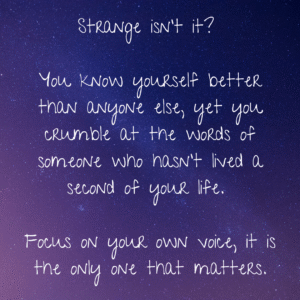Can you remember the last time you got angry and it felt good?
You probably can’t, right?
This is because anger is inherently a negative feeling, and while it may be directed towards someone or something else, the one person it harms is you. And that is because we tend to hold onto anger for too long.
Now anger isn’t necessarily “bad”. It is an emotion that can also be healthy. For me, anger can motivate me to make positive changes in my life. Sometimes finally getting mad at being mistreated by someone can be just the emotion to catapult you into raising your standards of how you expect to be treated.
The problem with anger arises when we hold onto feelings of anger and resentment because we want the other person to feel bad or even suffer. We want justice, because what the other person did is simply not okay. While that is a valid sentiment, at the end of the day, anger hurts us the most, not the other person. In fact, sometimes the other person could care less, while you suffer in your boiling rage.
Why is holding onto anger so bad for us?
It Snatches Away Your Peace
Holding onto resentment causes agitation and takes away your peace. We might think we are “winning” by holding onto a grudge, but all we end up doing is filling our head space with negativity and robbing ourselves of peace. As we stay angry, we fill ourselves with bitterness that not only weighs us down but causes tension and stress.
Holding the Grudge Intensifies the Negativity
When you hold onto a grudge or constantly think about how someone hurt you, it just amplifies the feeling. In fact, studies show that the inability to forgive negatively affects one’s well-being. Additionally, when couples hold on to anger and resentment, their negative feelings only intensify and separation becomes more likely.
For example, maybe something your partner does really irritates you. Accepting it can be hard, but once you do, you won’t feel so angry anymore.
On the other hand, imagine you talk about it to your girlfriends. As you describe the situation, the anger flares up once again in you, and just makes you feel even angrier. You relive the unpleasant situation again. But does it help solve the problem? Probably not. Does it help you feel any better? Nope.
So what’s the use? Let go of the grudge and prevent it from growing in intensity.
It Affects Your Physical Health
Anger not only affects our mental state, but holding onto anger also has an impact on our physical health. Anger creates tension in our bodies, increasing the stress hormone cortisol, disabling our body’s repair mechanism, reducing our immunity, and increasing inflammation. It can literally be poison to our bodies.
Your Anger Doesn’t Affect Them
Not only does anger harm you, but it also has no impact on the other person. The bitterness you carry that weighs you down, agitates you, and affects your mental and physical health often doesn’t even affect the other person. So, what’s the use of harming yourself?
Remember, anger is an acid that can do more harm to the vessel in which it is stored than on to anything on which it is poured. It harms only you. The next time someone makes you angry, choose to forgive them. Even if they were the ones who committed the wrongdoing. Don’t punish yourself for what someone chose to do.
Make peace with the situation and try to move on. Not because they deserve it. But because you do. And remember that forgiveness does not mean that you are okay with someone hurting you. Forgiveness means letting go of negative feelings. You can forgive and also choose to protect yourself from the hurtful person or situation. Forgiveness doesn’t mean you have to stay in situations that aren’t good for you.




